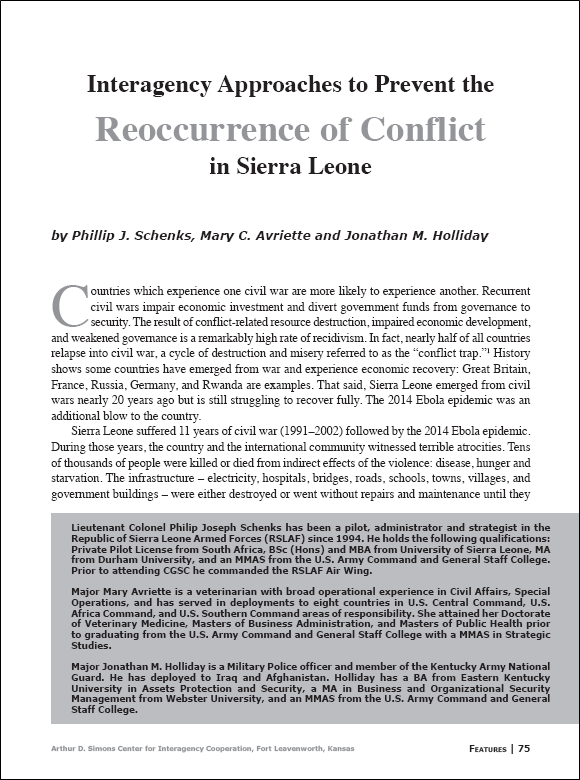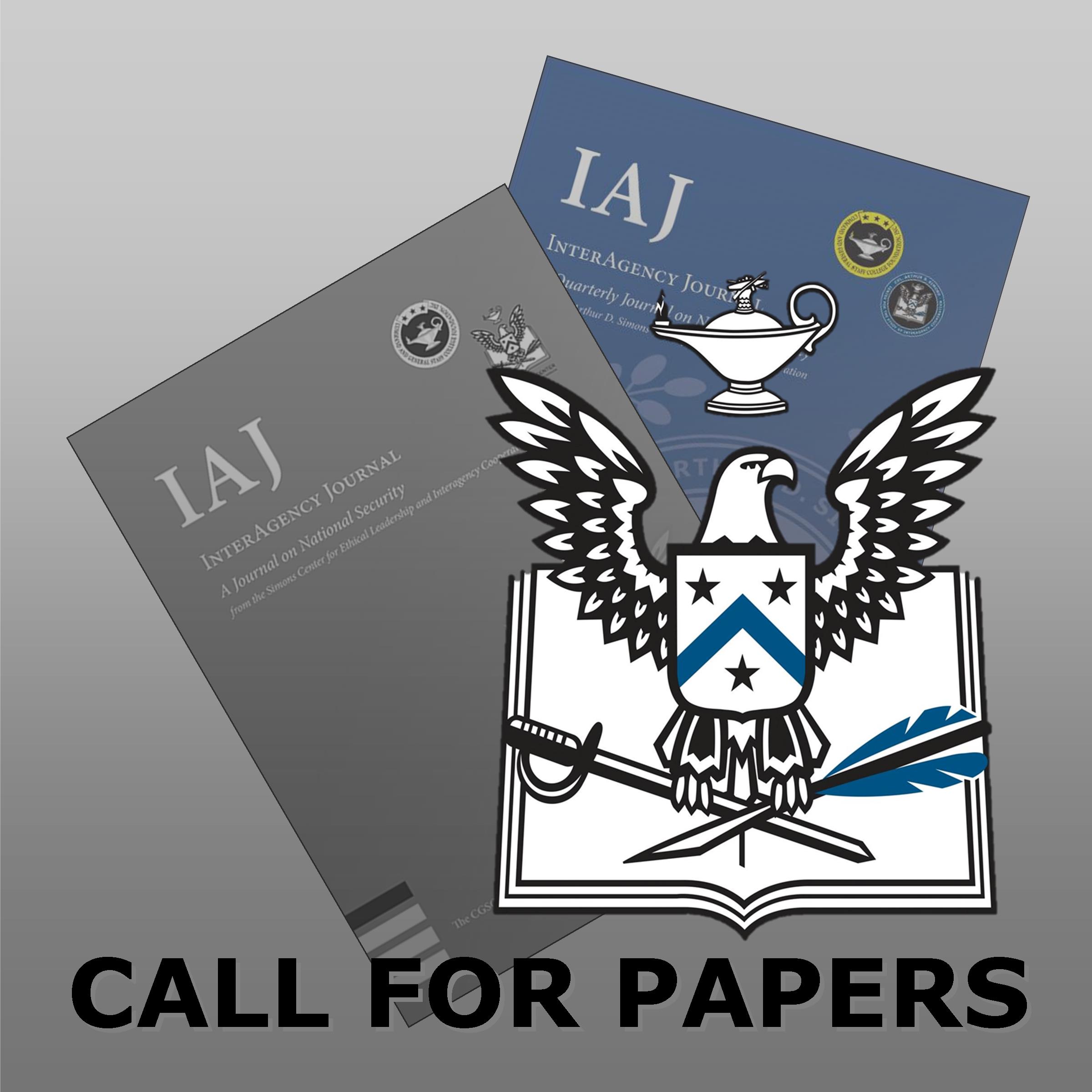Featured Article: Interagency Approaches to Prevent the Reoccurrence of Conflict in Sierra Leone
Featured article:
Interagency Approaches to Prevent the Reoccurrence of Conflict in Sierra Leone
by Phillip J. Schenks, Mary C. Avriette and Jonathan M. Holliday
Countries which experience one civil war are more likely to experience another. Recurrent civil wars impair economic investment and divert government funds from governance to security. The result of conflict-related resource destruction, impaired economic development, and weakened governance is a remarkably high rate of recidivism. In fact, nearly half of all countries relapse into civil war, a cycle of destruction and misery referred to as the “conflict trap.” History shows some countries have emerged from war and experience economic recovery: Great Britain, France, Russia, Germany, and Rwanda are examples. That said, Sierra Leone emerged from civil wars nearly 20 years ago but is still struggling to recover fully. The 2014 Ebola epidemic was an additional blow to the country.
Sierra Leone suffered 11 years of civil war (1991–2002) followed by the 2014 Ebola epidemic. During those years, the country and the international community witnessed terrible atrocities. Tens of thousands of people were killed or died from indirect effects of the violence: disease, hunger and starvation. The infrastructure – electricity, hospitals, bridges, roads, schools, towns, villages, and government buildings – were either destroyed or went without repairs and maintenance until they collapsed. Sierra Leone possesses substantial mineral, agricultural and marine resources, but it has been struggling with economic recovery after the civil war, and particularly since the Ebola crisis…
Read the full article
Interagency Approaches to Prevent the Reoccurrence of Conflict in Sierra Leone PDF
Download the complete edition
IAJ 10-1 (2019) pdf
IAJ 10-1 (2019) ePub
Lieutenant Colonel Philip Joseph Schenks has been a pilot, administrator and strategist in the Republic of Sierra Leone Armed Forces (RSLAF) since 1994. He holds the following qualifications: Private Pilot License from South Africa, BSc (Hons) and MBA from University of Sierra Leone, MA from Durham University, and an MMAS from the U.S. Army Command and General Staff College. Prior to attending CGSC he commanded the RSLAF Air Wing.
Major Mary Avriette is a veterinarian with broad operational experience in Civil Affairs, Special Operations, and has served in deployments to eight countries in U.S. Central Command, U.S. Africa Command, and U.S. Southern Command areas of responsibility. She attained her Doctorate of Veterinary Medicine, Masters of Business Administration, and Masters of Public Health prior to graduating from the U.S. Army Command and General Staff College with a MMAS in Strategic Studies.
Major Jonathan M. Holliday is a Military Police officer and member of the Kentucky Army National Guard. He has deployed to Iraq and Afghanistan. Holliday has a BA from Eastern Kentucky University in Assets Protection and Security, a MA in Business and Organizational Security Management from Webster University, and an MMAS from the U.S. Army Command and General Staff College.

Posted: March 27, 2019 by Simons Center
"*" indicates required fields


